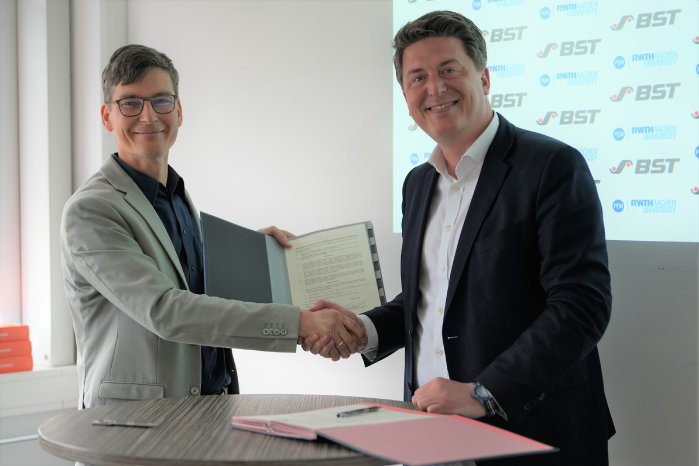"The industrialisation of production is one of the major tasks for the widespread establishment of battery and fuel cell technologies," says PEM Director Professor Achim Kampker. For this reason, BST and PEM want to work together on different aspects of development, such as the potential transferability of innovations from battery production to fuel cell production and the industrialisation of "SMARTdata" approaches. The partners could also work together in future on sub-processes in the drying of battery electrodes, on certain parameters in fuel cell and electrolyser production and on alternative membrane materials and their coating.
"Our broad portfolio of solutions, consisting of networkable web guiding and quality assurance systems that enable cross-process production optimisation, as well as our decades of experience with production automation, form the ideal basis for rapid development success," says Alexander Felix Heck, CEO of elexis AG, confidently.
The RWTH PEM Chair and BST GmbH, a subsidiary of elexis AG, which specialises in production automation, drive technology and quality control, have been cooperating in various areas since 2017. For example, the two players were involved in the joint industry workshop "Fit4E-Mobility", in the installation of a web guiding system in the PEM electromobility laboratory "eLab" at RWTH Aachen University and in a consortium project with BMW on the topic of "Industrialisation of fuel cells". Since 2022, PEM and BST have also been cooperating with the FFB (Fraunhofer Research Centre for Battery Cell Production FFB) in Münster, Germany and the German Engineering Federation (VDMA battery production).
As a full-service provider of quality assurance systems and solutions for web-processing industries, BST has also facilitated the open access publication of the 700-page PEM book "Elektromobilität - Grundlagen einer Fortschrittstechnologie", which has been downloaded around 825,000 times by Springer-Verlag since its publication in September 2023.


